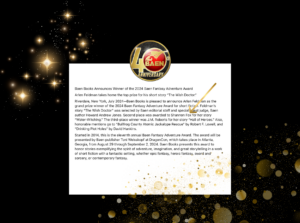Plainsong by Kent Haruf
In the same way that the plains define the American landscape, small-town life in the heartlands is a quintessentially American experience. Holt, Colo., a tiny prairie community near Denver, is both the setting for and the psychological matrix of Haruf’s beautifully executed new novel. Alternating chapters focus on eight compassionately imagined characters whose lives undergo radical change during the course of one year. High school teacher Tom Guthrie’s depressed wife moves out of their house, leaving him to care for their young sons. Ike, 10, and Bobby, nine, are polite, sensitive boys who mature as they observe the puzzling behavior of adults they love. At school, Guthrie must deal with a vicious student bully whose violent behavior eventually menaces Ike and Bobby, in a scene that will leave readers with palpitating hearts. Meanwhile, pregnant teenager Victoria Roubideaux, evicted by her mother, seeks help from kindhearted, pragmatic teacher Maggie Jones, who convinces the elderly McPheron brothers, Raymond and Harold, to let Victoria live with them in their old farmhouse. After many decades of bachelor existence, these gruff, unpolished cattle farmers must relearn the art of conversation when Victoria enters their lives. The touching humor of their awkward interaction endows the story with a heartwarming dimensionality. Haruf’s (The Tie That Binds) descriptions of rural existence are a richly nuanced mixture of stark details and poetic evocations of the natural world. Weather and landscape are integral to tone and mood, serving as backdrop to every scene. His plain, Hemingwayesque prose takes flight in lyrical descriptions of sunsets and birdsong, and condenses to the matter-of-fact in describing the routines of animal husbandry. In one scene, a rancher’s ungloved hand repeatedly reaches though fecal matter to check cows for pregnancy; in another, readers follow the step-by-step procedure of an autopsy on a horse. Walking a tightrope of restrained design, Haruf steers clear of sentimentality and melodrama while constructing a taut narrative in which revelations of character and rising emotional tensions are held in perfect balance. This is a compelling story of grief, bereavement, loneliness and anger, but also of kindness, benevolence, love and the making of a strange new family. In depicting the stalwart courage of decent, troubled people going on with their lives, Haruf’s quietly eloquent account illumines the possibilities of grace.
I picked up this novel on the recommendation of a friend. I’m working on my honors thesis, which is a short fiction novella set in Colorado Springs in 1899. While Plainsong takes place in more of the modern time period, there is a still a quiet grace to Haruf’s style that is something I was also bringing into my own work, hence the connection.
This isn’t a novel I would have ordinarily picked out for myself. I probably wouldn’t have paid it a second glance, but she told me it was one of her favorites so I gave it a try. And I also loved it. For anyone who’s lived in Colorado, or the other plains states, or even the Midwest, or a small town, or simply has an affinity for any of these things, you will enjoy this novel. The opening scene of Haruf’s book follows Guthrie as he observes the sunrise then goes to wake up his young sons. This slice of life portrait of family and rural living, of a milder sort of life where beauty if observed daily and never forgotten, is the perfect entry into Plainsong.
Much of the novel is given over to beautiful descriptions of nature and the sky and the weather. The plot itself is fairly sedate and never gets very intense or moves very quickly. Haruf understands pacing and in particular, he understands the pace of Holt, Colorado. We are bound to a time clock through the pregnancy of the teenage girl, so the novel progresses with the progression of her unborn baby. Even the climax of the novel, is very lowkey by the standards of many of high action, high concept books on the market. This novel is really just exquisite in the way it relates a story which is so linear in terms of events; things happen, but they are neither very big nor very small. Each event is important in its own way, but the building upon past events that many works take doesn’t happen in Plainsong. In a way, it’s like looking at a series of vignettes of small town life, albeit vignettes with a clear and steady plot, with repeating characters. You almost feel like you know what’s going to happen in the novel before it does, but that in no way detracts from it.
Haruf’s style is really accessible and sort of curls around the reader and brings them in, keeping them turning the pages despite the million other things they could or probably should be doing.




